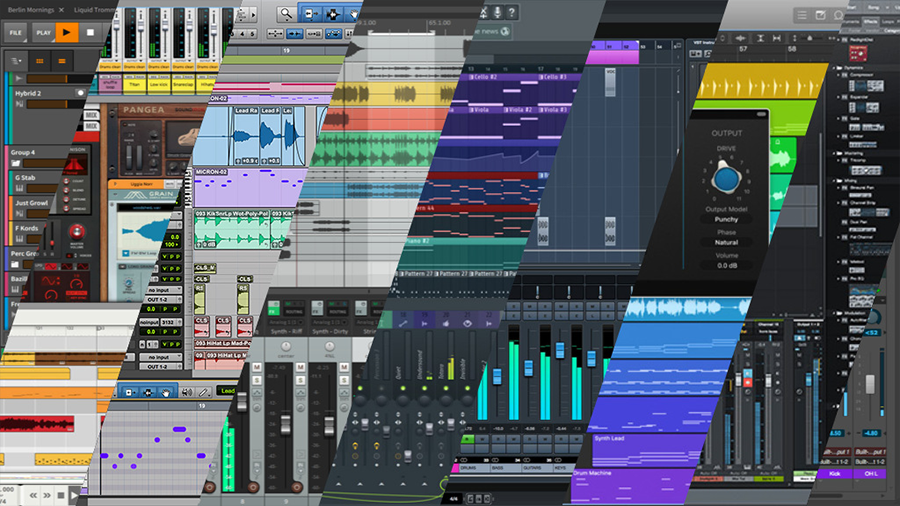In the vast realm of music production, choosing the right Digital Audio Workstation (DAW) is a critical decision that can significantly impact your creative process and overall output. With numerous options available in the market, finding the best DAW that suits your specific needs and preferences can be a daunting task. Fear not, for we are here to guide you through this intricate journey and help you make an informed choice that will elevate your music production endeavors to new heights.
Understanding the Importance of Choosing the Right DAW
Before delving into the specifics, let's take a moment to acknowledge the pivotal role a DAW plays in the creative workflow of musicians, producers, and sound engineers. A DAW serves as the central hub where ideas are transformed into tangible musical expressions. It provides a range of tools and features that enable recording, editing, arranging, mixing, and mastering of audio tracks, making it an indispensable asset for anyone involved in music production.
Factors to Consider When Choosing a DAW
Selecting the best DAW for your needs requires a comprehensive assessment of various factors. Here are some key considerations to keep in mind:
1. Workflow and User Interface: A DAW should feel intuitive and comfortable to use, allowing you to focus on your creative process rather than getting lost in complex menus. Consider the layout, navigation, and overall user experience of the DAW.
2. Feature Set and Flexibility: Each DAW offers a unique set of features and tools. Assess your requirements and ensure that the DAW you choose offers the necessary functionalities to meet your specific needs. Look for features such as MIDI sequencing, virtual instruments, audio effects, and third-party plugin compatibility.
3. Compatibility and Integration: Check the compatibility of the DAW with your operating system and hardware setup. Additionally, consider the ease of integration with external hardware, controllers, and audio interfaces.
4. Audio Quality and Processing: A high-quality sound engine and robust audio processing capabilities are vital for achieving professional-grade results. Look for a DAW that offers pristine audio quality, efficient resource utilization, and low latency performance.
5. Community and Support: The strength of the user community surrounding a DAW can greatly impact your journey as a music producer. Opt for a DAW that has an active and supportive community, as it provides opportunities for learning, collaboration, and troubleshooting.
6. Price and Value: DAWs come in a range of price points, from free options to premium software suites. Consider your budget and evaluate the value proposition of each DAW based on the features and benefits it offers.
Popular DAWs in the Market
Now that we have established the important factors to consider, let's explore some of the top contenders in the DAW market:
1. Ableton Live: Known for its powerful performance capabilities and innovative session view, Ableton Live is a favorite among electronic music producers and live performers. It offers a sleek user interface, extensive MIDI capabilities, and a vast library of instruments and effects.
2. Logic Pro X: Developed by Apple, Logic Pro X is a feature-rich DAW with a user-friendly interface. It is known for its exceptional MIDI sequencing, comprehensive virtual instrument collection, and seamless integration with other Apple devices.
3. Pro Tools: Widely regarded as the industry standard in professional music production, Pro Tools offers a robust set of features tailored for recording, editing, and mixing audio. It excels in post-production, film scoring, and collaborative workflows.
4. FL Studio: FL Studio, formerly known as FruityLoops, is a versatile DAW that caters to a wide range of genres and production styles. It boasts a unique pattern-based workflow, an extensive collection of virtual instruments, and a vibrant user community.
5. Cubase: With its rich heritage in the music production realm, Cubase has earned a reputation as a comprehensive and reliable DAW. It offers advanced audio and MIDI editing capabilities, an extensive plugin ecosystem, and robust mixing and mastering tools.
Selecting the best DAW for your music production needs is a subjective endeavor that depends on your personal preferences, workflow, and creative goals. It is crucial to thoroughly evaluate the features, usability, and compatibility of each DAW. Whether you prioritize a streamlined interface, advanced MIDI capabilities, or industry-standard audio processing, the right DAW is out there waiting to elevate your music to new heights.

